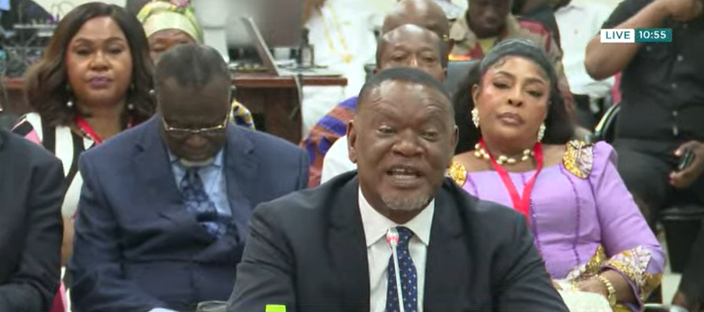Justice Senyo Dzamefe, a nominee for the Supreme Court of Ghana, has taken a firm stance in support of investigative journalism, even when it scrutinizes the judiciary. During his appearance before Parliament’s Appointments Committee on June 16, 2024, he explicitly rejected the notion of suppressing investigative reports, emphasizing that truth and fairness should be the guiding principles for journalistic endeavors. This declaration arrives amidst national discussions regarding press freedom and the media’s role in holding public institutions accountable, including the judiciary. Justice Dzamefe’s position signifies a commitment to transparency and constitutional freedoms, resonating with advocates of a robust and independent press.
His unwavering support for investigative journalism reflects a growing recognition of its importance in a democratic society. A free press acts as a crucial check on power, ensuring transparency and accountability across all branches of government. By investigating and reporting on potential misconduct or systemic issues, journalists contribute to a more informed public discourse and facilitate necessary reforms. Justice Dzamefe’s acknowledgment of this vital role reinforces the idea that a healthy democracy thrives on the ability of the press to scrutinize even the most powerful institutions without fear of reprisal.
Furthermore, his stance directly addresses the ongoing debate about balancing judicial integrity with media scrutiny. Some argue that excessive media attention can undermine public trust in the judiciary, while others maintain that transparency is essential for maintaining that very trust. Justice Dzamefe’s position suggests a belief that legitimate public oversight strengthens the judiciary, not weakens it. By embracing scrutiny, the judiciary can demonstrate its commitment to accountability and dispel any perception of operating in secrecy or with impunity. This openness can, in turn, foster greater public confidence in the judicial process.
Justice Dzamefe’s comments also carry significant weight in the context of Ghana’s ongoing efforts to consolidate its democratic gains. A vibrant and independent press is considered a cornerstone of any thriving democracy. By explicitly supporting investigative journalism, even when directed at the judiciary, he signals a commitment to upholding the principles of free expression and a free press. This stance is likely to be welcomed by civil society organizations and international observers who monitor democratic progress and advocate for press freedom as a fundamental human right.
His statement before the Appointments Committee provides a valuable opportunity to reflect on the broader implications of press freedom for Ghana’s democratic trajectory. A robust and independent media landscape is not merely a desirable feature of a democratic society; it is an essential component. It empowers citizens with the information they need to participate meaningfully in the political process and hold their elected officials accountable. By fostering an environment where journalists can operate freely and without fear of reprisal, Ghana can strengthen its democratic institutions and ensure greater transparency and accountability across all sectors of society.
In conclusion, Justice Dzamefe’s unequivocal support for investigative journalism represents a powerful affirmation of the importance of a free press in a democratic society. His stance underscores the principle that no institution, including the judiciary, should be immune from scrutiny. By embracing transparency and accountability, the judiciary can strengthen public trust and contribute to a more robust and vibrant democracy. His comments are particularly significant in the context of Ghana’s ongoing democratic development, serving as a reminder of the vital role of a free and independent press in holding power to account and ensuring the health of the nation’s democratic institutions. This commitment to press freedom is essential not only for exposing potential wrongdoing but also for fostering a more informed and engaged citizenry, ultimately contributing to a stronger and more just society.


